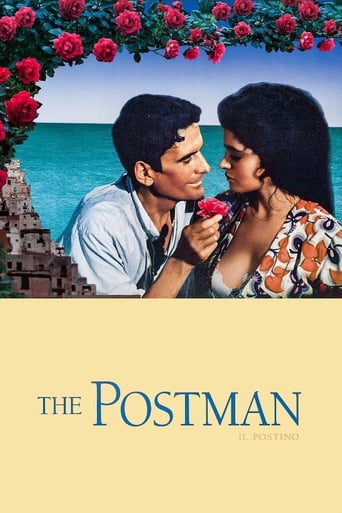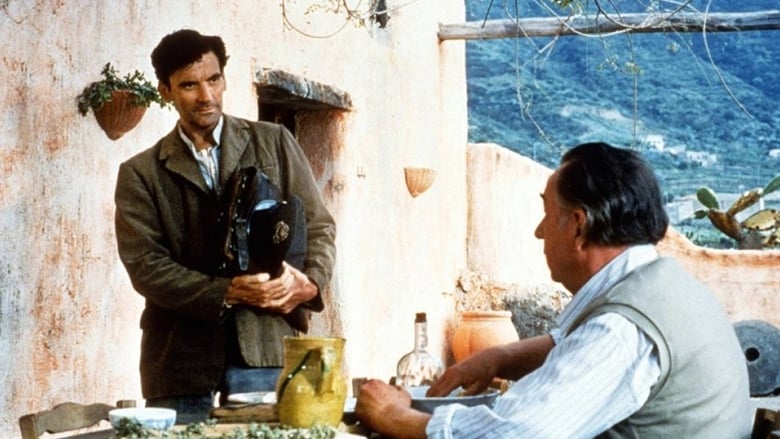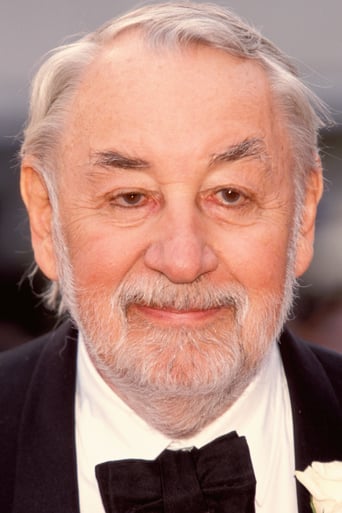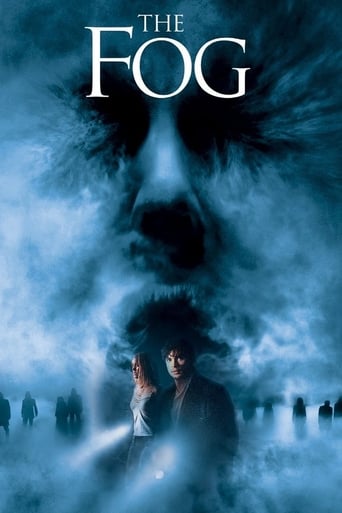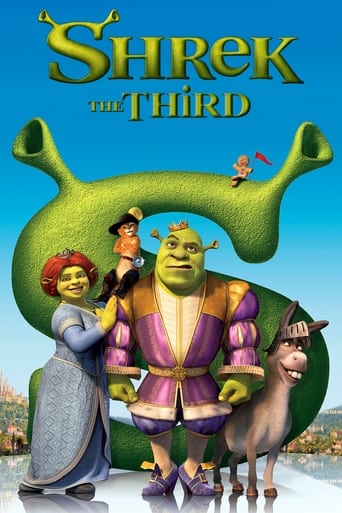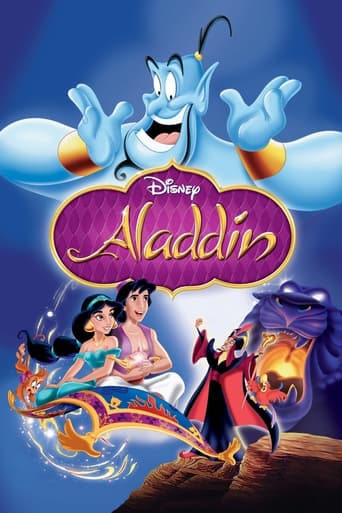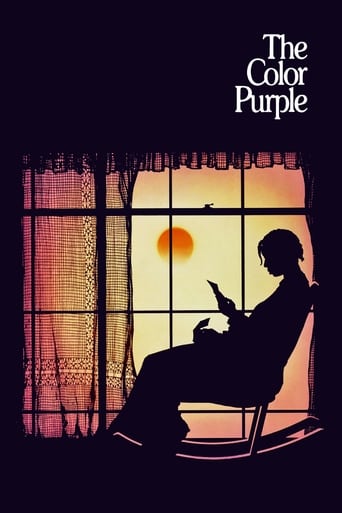The Postman (1995)
Simple Italian postman learns to love poetry while delivering mail to a famous poet; he uses this to woo local beauty Beatrice.
Watch Trailer
Free Trial Channels
Cast


Similar titles
Reviews
Bad Acting and worse Bad Screenplay
A waste of 90 minutes of my life
This is a small, humorous movie in some ways, but it has a huge heart. What a nice experience.
It’s fine. It's literally the definition of a fine movie. You’ve seen it before, you know every beat and outcome before the characters even do. Only question is how much escapism you’re looking for.
Although "Il Postino" simply means "The Postman", and although the film was at one time screened as "The Postman" in Britain, it is now generally known in English by its Italian title to avoid confusion with Kevin Costner's post-apocalyptic epic from three years later. It is loosely based upon the novel "Ardiente paciencia" by the Chilean writer Antonio Skármeta, although it transfers the action from Chile to Italy. It takes as its starting-point the fact that in the early 1950s the famous Chilean poet Pablo Neruda, in exile from his homeland for political reasons, spent some time on the island of Capri. The film, however, is not set on Capri but on an unnamed Italian island. A young fisherman named Mario Ruoppolo applies for a job as the island's postman. As he owns a bicycle and is one of the very few islanders who can read and write he is accepted and is told that he will only have one customer, Neruda himself, as because of the low levels of literacy on the island nobody else ever receives any mail. (Were standards of education really so low in fifties Italy?)Although Mario has never previously heard of Neruda, and certainly has never read any of his poems, a friendship gradually grows up between the two men. Although Mario has had little formal education he is clearly an intelligent and sensitive man, and Neruda reads him some of his poetry (in Italian translation), teaching him about literary concepts such as metaphors. With Neruda's help Mario woos the beautiful Beatrice, a village girl with whom he has fallen in love, stealing some of the older man's love poems and passing them off as his own in order to win her affections. My one criticism of the film would be that it is too sentimental about Communism, but that is perhaps only to be expected of a film from Italy, a country which at one time had the largest Communist Party in Western Europe. (In the seventies they used to win around a third of the popular vote, at a time when the British Communist Party generally consisted of three old men and a dog). Pablo Neruda is here portrayed as a kindly, idealistic gentleman, but in reality, during the forties and early fifties, he was a Communist hardliner who enthusiastically defended Stalin's dictatorship in the Soviet Union. After Khrushchev's 1956 "secret speech" he was to criticise the Stalinist cult of personality but this was due less to a change of heart than to a desire to align himself with the new official Soviet party line. He was also, at the time of his Italian exile, around twenty years younger than the character portrayed here by Philippe Noiret. Its politics aside, however, "Il Postino" is in many ways an excellent film. There is some attractive photography of the Italian coastal scenery and a great musical score by Luis Enríquez Bacalov. What really makes the film stand out, however, are the two great performances from Noiret and from Massimo Troisi, who tragically died of a heart attack soon afterwards, as Mario. There is also a good performance from the lovely Maria Grazia Cucinotta as Beatrice. Troisi received a posthumous Oscar nomination for "Best Actor", but lost out to Nicholas Cage in "Leaving Las Vegas"; as I have never seen that film I am unable to comment on the justice of that decision. I felt, however, that it was unfortunate that there was no nomination for Noiret either as "Best Actor" or "Best Supporting Actor". Indeed, this is one of those films which make me feel that it should be possible to nominate two actors for a joint award, as Noiret and Troisi combine together so well that their joint contribution seems greater than the sum of its two parts. This is the story of a touching relationship between two men of different generations, of different nationalities, of different levels of education and of different outlooks on life who are nevertheless united in friendship. 8/10
The Chilean poet and communist agitator Pablo Neruda may never have set foot on the island of Salina in 1950, but writer-actor Mariamo Troisi's exploration of the idea is probably more interesting than any account of his actual exiles abroad. The eponymous postman of the film, Mario, has never taken to the patrilineal profession of fishing in his family. His widower father understands he never will and releases his seemingly simple son from his duties, to choose an occupation more suited to his abilities. In town, the communist postmaster needs a hand with the flurry of fan mail in the wake of Neruda and his wife's arrival. He greatly admires the Bolivarian bard and has his new postman run reconnaissance and procure signatures from him. Though their early exchanges may be of little significance, the two very different men of letters soon form a bond through a series of exchanges on poetry, love and politics. When Mario first meets barmaid Beatrice Russo over a game of table football, he instantly falls in love. He is inspired by his mentor to write her love poems, many of which he plagiarizes, and soon wins her heart. Michael Radford's surname may seem a little consonant-heavy for a production of this origin but the writer-director's English eye can only be clearly detected in the humour of the pacey, racy table football scene; which a native or continental director may have shot a little more seductively. It is really Troisi who leaves his indelible print on the film, which would be his last (dying tragically the day after production wrapped). The actor's physical frailty comes across as his character's mumbling humility. When beautiful Maria Grazia Cucinotta falls for his charms (or lack thereof), no one would seem more deserving a husband than he, and it is immensely gratifying to see his son Pablito stumble onto screen at the end. Phillipe Noiret also evokes much feeling in the last scene, imagining his friend's great yet fatal agitation for change, while walking their familiar beach. We get the feeling they may have liberated one another.'Il Postino' is very much a film that flows like poetry. There is no solid structure as prescribed by the script doctors of the time. No stakes and little drama. When our lovable protagonist dies at the end, it is not played for tears of devastation. I felt quiet elation: he had finally found his voice and could speak up for his people at the rally. He asks Neruda earlier in the film a question regarding the writer's revolutionary ideals, "So what if we break off our chains? What do we do then?" He obviously has an answer to that question by the end, which is satisfaction enough. In another exchange, when Mario's plagiarism is discovered by Pablo, he counters "Poetry doesn't belong to those who write it; it belongs to those who need it." This strikes one as quite humorous in the context of the scene but when recalled or read alone it signifies the point at which Mario has cast the chains off his mind. Sadly the distributors do not live by this dictum, and intellectual copyright law prevails online and elsewhere.While it may be a fictional account, the film is very much a celebration of the actual effect Neruda's poetry had on many of the working people of the world. Not so much a tribute to him, but to the millions of postini worldwide who have been delivered and a rallying call for all those who have yet to be.
Michael Radford's tender and rather sweet film, The Postman, is a really quite blinding tale of a man, without either much of a life or very many happenings in and around his existence, going out of his way so as to spawn some. The film is a ground zero character study working its way up, centring on one man and coming to gloriously flesh out his relationships with two people in the form of a mentor and a love interest using the item of poetry, and poets in particular, as a focal point or anchor around which to revolve the ever shifting lives of these half a dozen-or so people. The central character is a certain young man named Mario Ruoppolo, played by Italian actor Massimo Troisi whom died shortly after the film was completed and is one of only seven people to have won a Posthumous Academy Award for acting, which he won for his portrayal of a character named Mario. His life in the early part of the 20th Century on an island off the coast of Italy lies seemingly dormant; a living with his father, whom spends his days at sea fishing for a living, whilst inhabiting a scruffy and run down house on the cliff-side which cannot even produce water from a tap when desired, the situation; with a postcard from some brothers whom have arrived in America offering a brief insight into a supposedly better life.Determined to get on track, the softly spoken; delicate and slow moving Mario shifts off to a local post office so as to apply for the advertised job of delivering letters and mail, locally. On another tangent, that later will become intrinsically linked to that of Mario, a controversial poet from South American nation Chile of true to life existence named Pablo Neruda (Noiret) arrives in Italy having been exiled. His demeanour arrives by way of a newsreel sequence at a picture house, footage which the locals and us watch and listen to simultaneously establishing a set-persona of the man and his controversial, Communist infused existence of writing poetry crash-landing on this small Italian island, much to some of the locals' anger but to the glee of others. The early perceptions of the man are meant to be relatively concrete; he inhabits a beautifully placed but isolated red-washed villa on a separate cliff edge, before plodding Mario comes to form a bond with the poet upon delivering his many letters and from whence the film garners its catalyst so as to play out.The film comes to form a learning process for that of Mario, a deconstruction of an item or art-form that he'd almost certainly heard of in the past but very rarely thought about above a certain level. The same can be said for that of Chilian poet Neruda in regards to the fondness and acceptance the town come to have of him after he and his wife and their bond with a number of people come to forge, a relationship much richer than what he has experienced back home or, you feel, in most other places. Romance appears to want to bloom between Mario and local girl Beatrice (Cucinotta), the daughter of a traditional, hard-up Catholic woman whom owns a tavern within the vicinity; the spying of her playing a game of rather erotically charged flick-rod football in said tavern complete with thrusting of the mannequin players and hammering home of the goals more than enough to have Mario smitten from then on in.But the film is ultimately about the relationship or bond between two men going on around their separate relationships with Beatrice and Pablo's own female partner whom later becomes his wife. It would be untrue to say that the film at all feels less of an accomplishment when certain events transpire and the once central unification of Mario and Pablo is broken up; rather, the ties they have to one another during the film's early scenes are just more interesting, as is the chilling finale involving the two, than any sub-plot to do with either men and what happens between them and their women. Mario's attempts to court a young local girl and the noticeable placing of Pablo's own female partner predominantly off screen and away from the action for most of the time might render the relationship between Mario and Pablo one of a homo-erotic nature. Much later on, a Paris based interview with the poet some years later has Mario read on with keen interest as to whether he or anyone from the town are mentioned; the camera darting around from face to face of those reading with Mario in a kind of panic or nervous excitement or lusting requirement for purifying fulfilment in the form of notifying them, predominantly the notifying of Mario.The convenience in having come to have known a master of poetry of a romantic sort, somebody that feeds off of a belief that all women love romantic poetry and that it is the key to pertaining to a relationship, works very much in Mario's favour. His gradual learning of how to construct it, the encountering of terms and words such as what a metaphor is gradually come to form the nucleus of the first half of the film; a fitting sequence on a nearby beach sees Pablo gradually reveal himself as he readies to swim in a physical sense as Mario comes to reveal a spoken metaphor for the very first time as, on another occasion, he gradually forms an opinion of a short poem Pablo comes up with on the spot. The film's attention to finer things such as these, an including of sequences in which characters must first come to master the basics of an art or activity so as to garner entry onto another plateau so as to put what has been learnt into action, feels wonderfully prominent, resulting in Radford's film being thoroughly worthwhile.
I love these kinds of stories. Poetic in nature and heartfelt. This is a very touching love story. THe soundtrack combined with the poetic way the film moves along and the narration all come together wonderfully. The director, Michael Radford did a superb job of mixing the guy girl relationship and the guy guy relationship evenly. And what beautiful cinematography. It's not often that I say this, but I wish that it went on just a little longer. Maybe because I loved the soundtrack so much! I only wish that more movies were able to be made like this in the U.S. I really do think that there is an audience out there for this. I love independent movies. I'm new to the IMDb and look forward to catching new projects all the time.

